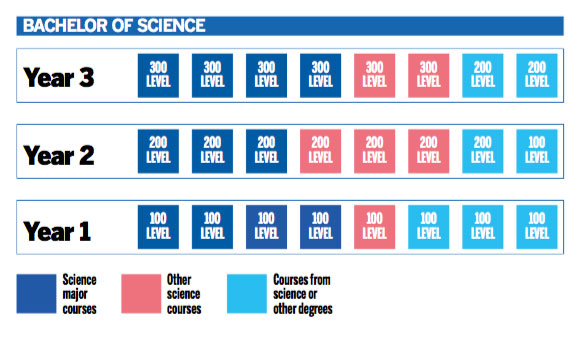
Mapping the Path to Academic Excellence
Introduction
Bachelor’s degree programs serve as the foundational stage of higher education, equipping students with specialized knowledge and critical thinking skills. Understanding the typical length and structure of these programs is essential for aspiring students and parents to plan their academic journey effectively. In this article, we explore the key components of bachelor’s degree programs, their typical length, and the benefits of this educational pathway.
The Four-Year Journey: Typical Length of Bachelor’s Degree Programs
“Education is the passport to the future, for tomorrow belongs to those who prepare for it today.” – Malcolm X
Bachelor’s degree programs in the United States typically span four years of full-time study, representing a well-rounded academic journey.
Freshman Year
The first year, known as the freshman year, introduces students to general education courses and the academic environment. Freshmen explore various subjects before declaring a major.
Sophomore Year
During the sophomore year, students delve deeper into their chosen major, completing foundational courses that form the backbone of their academic expertise.
Junior Year
The junior year is characterized by advanced coursework and specialized electives, refining students’ understanding of their field of study.
Senior Year
The final year emphasizes capstone projects, senior theses, and hands-on experiences, allowing students to demonstrate their mastery of the subject and prepare for graduation.
Real-Life Example: A Four-Year Success Story
Jessica, a dedicated student at ABC University, completed her bachelor’s degree in Psychology in four years. Through diligent course planning and summer classes, she successfully balanced academics, internships, and extracurricular activities, graduating on time with honors.
The Core Curriculum: Key Components of Bachelor’s Degree Programs
“Education is not the filling of a pail, but the lighting of a fire.” – William Butler Yeats
Bachelor’s degree programs consist of a core curriculum that provides a well-rounded education, nurturing students’ intellectual and personal growth.
General Education Requirements
General education courses expose students to a wide range of disciplines, including English, mathematics, natural sciences, social sciences, and humanities. These courses enhance critical thinking and communication skills.
Major Requirements
Major requirements form the crux of bachelor’s degree programs, focusing on in-depth study and specialization in a particular field. These courses prepare students for careers related to their chosen majors.
Electives and Minors
Elective courses allow students to explore additional subjects of interest outside their major field. Minors provide the opportunity to complement their major with a secondary area of expertise.
Real-Life Example: Diverse Academic Journey
At XYZ College, Sarah pursued a bachelor’s degree in Economics with a minor in Environmental Studies. Her electives included courses in Political Science and Data Analytics, allowing her to develop a well-rounded skill set.
The Role of Technology: Enhancing Bachelor’s Degree Programs
“Technology can become the “wings” that will allow the educational world to fly farther and faster than ever before – if we will allow it.” – Jenny Arledge
Incorporating technology into bachelor’s degree programs offers numerous benefits, transforming the educational experience for both students and educators.
Online Learning Platforms
Educational institutions harness online learning platforms to deliver course materials, facilitate discussions, and provide access to digital libraries and resources.
Virtual Labs and Simulations
For fields that require practical experience, virtual labs and simulations allow students to conduct experiments and gain hands-on experience in a virtual environment.
Real-Life Example: The Virtual Biology Lab
At College A, biology students utilize virtual lab software to perform intricate experiments, replicating real-life scenarios. The virtual lab offers flexibility and accessibility, enhancing the learning experience for all students.
Flexibility and Accessibility: Customizing Bachelor’s Degree Programs
“Education is the most powerful weapon which you can use to change the world.” – Nelson Mandela
Today’s educational landscape emphasizes personalized learning, and bachelor’s degree programs are no exception.







